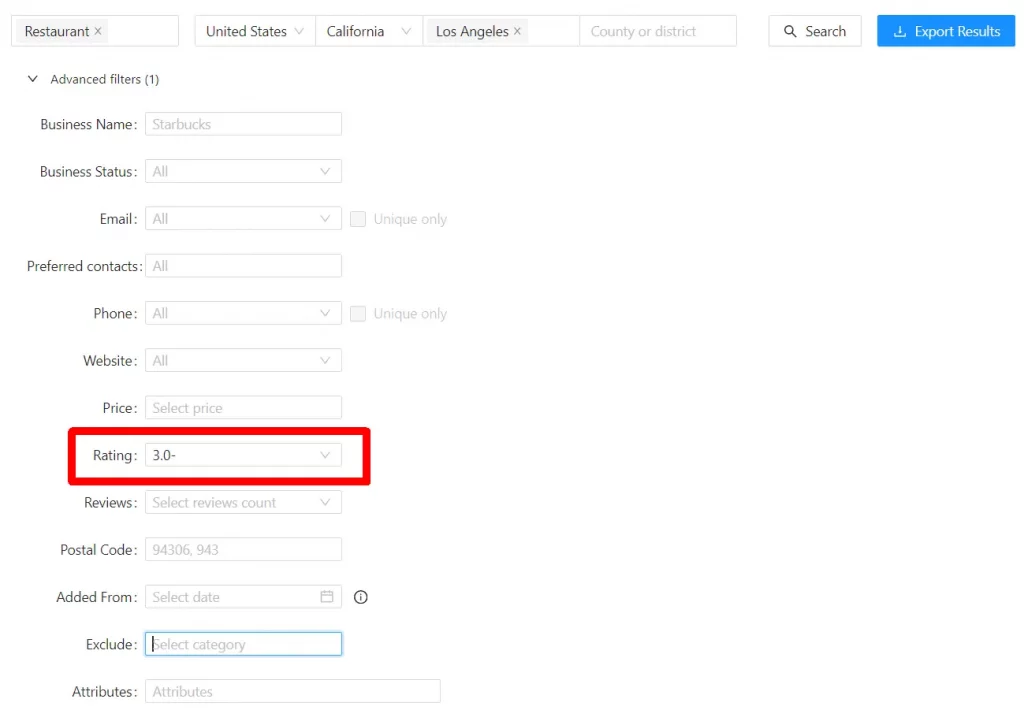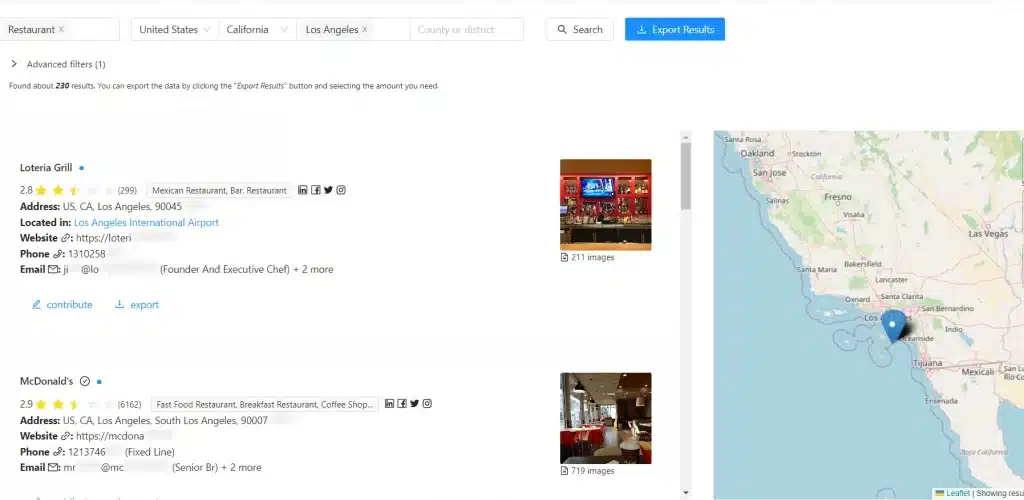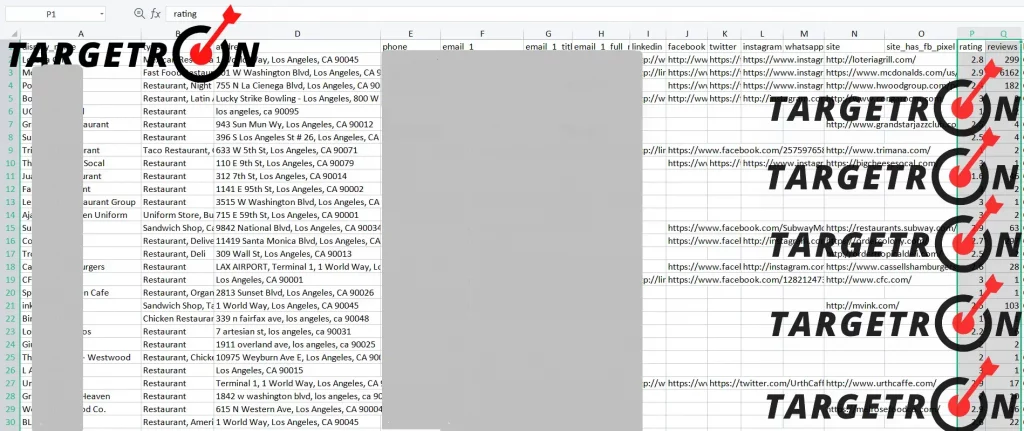Crucial Role of Reputation Management in Effective Lead Generation
Table of Contents
Reputation Management in Lead Generation
The reputation of any business is significant in today’s digital age, especially when it comes to lead generation. Managing a company’s reputation could make or break a business and has become an essential strategy for businesses seeking to attract and retain customers. One of the most effective lead generation strategies is carefully managing every business’s reputation.
In any business, taking care of your reputation online and offline is an excellent start. This article will reveal how effective reputation management can significantly enhance lead-generation efforts. Every business should take care of its reputation, but what about the chance of knowing some companies with terrible reputations and targeting them as potential customers using the tools provided by Targetron? We will dig deeper into that later and show you how to utilize the tools for reputation management.
Reputation management is crucial in lead generation; we will delve into this topic and understand the whole thing. Aside from that, we will not only be discussing the crucial role of reputation management, but we will also be providing solutions to your company’s bad reputation with available tools provided by Targetron, one of the leading B2B lead generation providers in the United States.
Understanding Reputation Management
Reputation management involves monitoring and influencing how a business is perceived online and offline. Imagine your business is a person in a big community like the internet. What this person does, says, and how they treat others will affect what people in the community think of them.
Managing your reputation as a business encompasses a range of activities, including managing online reviews, managing your social media presence, and handling public relations. In the context of lead generation, reputation management is about building a trustworthy and positive image that appeals to potential customers.
Speaking of online reviews, think of a restaurant where customers leave reviews online about their foods and services. If the customer says the food was excellent and the service was friendly, that’s good for the reputation. If the customers don’t like the food and service, it could ruin the restaurant’s reputation.
Reputation management is also crucial in social media; if you have a clothing store online, your reputation will increase if your customers leave positive comments and reviews, helping your business create a positive image.
Handling problems is also crucial because it will help the business build trust, especially in handling feedback. Your response should always be focused on customer service. Showing good deeds like donating is also an example of increasing your reputation as a business.
Impacts of Reputation on Lead Generation
1. First Impressions Matter: A company’s online presence often makes the first impression in today’s digital age. As company owners, a well-managed reputation can ensure a first positive impression as it significantly increases the likelihood of converting visitors into leads.
2. Brand Awareness: A strong brand awareness is the first step towards effective reputation management. It’s about making your brand known and recognizable.
3. Trust and Credibility: Customers are more likely to engage with credible and trustworthy businesses. Positive reviews, customer testimonials, and active social media engagements are vital in building trust.
4. SEO and Content Marketing: Search Engine Optimization enhances your brand’s online visibility, making it easier for potential leads to find you. Complementing SEO with robust content marketing, which involves creating valuable content, establishes your brand as an industry thought leader.
5. Search Engine Rankings: Online reputation impacts SEO. Positive reviews and content can improve a company’s search engine rankings, making it more visible to potential leads.
6. Handling Negative Feedback: Effective reputation management also involves addressing negative feedback constructively. Responsiveness to customer complaints demonstrates a commitment to customer service, which can positively influence potential leads.
Strategies for Effective Reputation Management in Lead Generation
1. Monitor Your Online Presence: Regularly check and manage your online reviews, social media, and other platforms where your business is discussed.
2. Encourage Positive Reviews: Encourage satisfied customers to leave positive reviews. These reviews can act as powerful tools for generating new leads.
3. Engage Proactively on Social Media: Maintain an active and engaging presence on social media. Use these platforms to connect with potential customers and build a community around your brand.
4. Respond to Feedback: Respond promptly and professionally to positive and negative feedback. Show that you value customer opinions and are committed to improving their experience.
5. Content Marketing: Publish high-quality, relevant content that portrays your business positively and enhances your brand’s image.
6. Leverage Customer Testimonials: Showcase customer testimonials on your website and marketing materials. Authentic stories from satisfied customers can be compelling to potential leads.
8. Utilize Influencer Marketing: Utilizing individuals with influence over potential buyers can extend your brand’s reach and enhance its reputation. It can significantly increase lead generation when combined with broader digital marketing efforts.
7. Stay Consistent and Authentic: Ensure your messaging and branding are consistent across all platforms. Authenticity fosters trust and strengthens your reputation.
How to Use Targetron's Data in Reputation Management
Step1: Open your Targetron Account
Step2: Proceed to the Business Directory
Step3: Select the Category (ex., Restaurant), Country (United States), State (California), and City (Los Angeles)
Step4: Click Advanced Filters and Select Rating with (3.0-)
Step5: Click Search and then Export Data
Now that you have all the data from Targetron, you can easily use it for your business, like providing some service to restaurant owners with bad reputations or reviews to improve their reputation. This valuable data can also be utilized as your primary tool to design some strategies for the service needed by restaurants with low or destructive reputations.
Conclusion
Managing your online presence across all platforms ensures a cohesive and positive brand image. Customer Relationship Management (CRM) systems play a crucial role in this, helping track and analyze customer interactions, further aiding in personalized and effective reputation management.
A strong, positive online reputation can significantly enhance a business’s ability to attract new leads and grow. By investing in reputation management, companies can build a powerful tool that attracts and retains valuable customer relationships. To make some progress with your reputation management, you also need to invest in tools like the B2B lead generation tools provided by Targetron.
Reputation management is a multi-faceted approach involving brand awareness, customer engagement, online reviews, PR, SEO, content marketing, testimonials, crisis management, influencer and digital marketing, online presence management, CRM, lead nurturing, and analytics.
By effectively leveraging these elements, businesses can enhance their reputation and see a significant uptick in lead generation. A brand’s most valuable asset in the digital marketplace is a strong, positive reputation. For effective reputation management, you should invest in tools like Targetron.
Start with Targetron Right now
Want to generate leads? Whether you're looking to start finding contacts from local businesses or from companies across the globe, Targetron got you covered. Sign Up now and start finding your clients.
Get Started TodayFAQ
Most frequent questions and answers
1. Go to the Targetron Platform.
2. Select categories and locations.
3. Click search, and export to get the data.
A lead database is a list of business contacts within a particular niche, category, or industry. It contains emails, phone numbers, and other marketing information.
B2B Sales Leads Database contains data from many sources that are publicly available on the internet but gathered together in once place. Filter your ideal customers by industry, locations, and export lead generation database to start outreaching.



